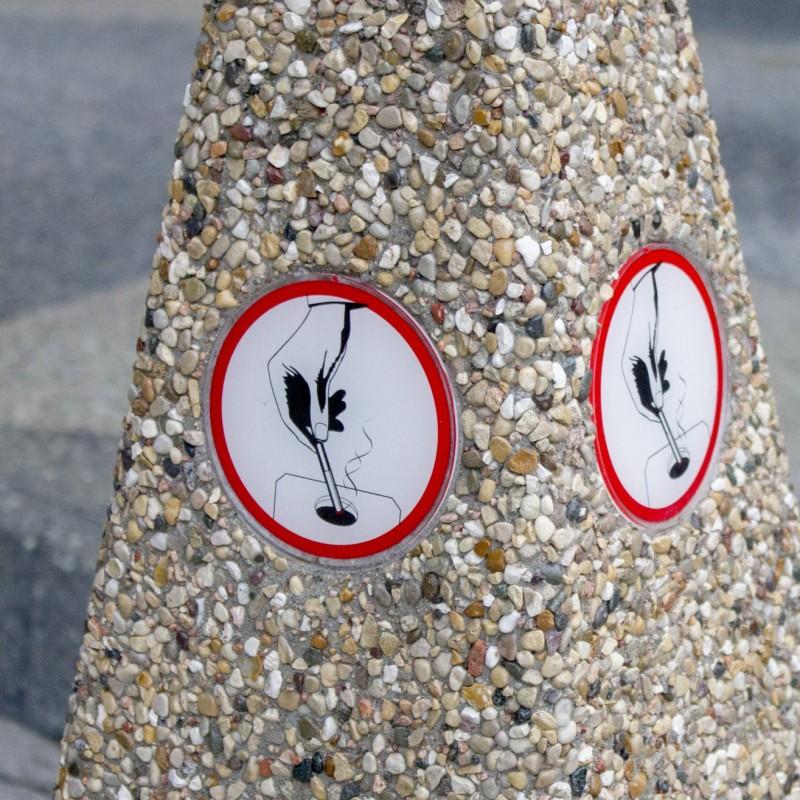It is official, Trinity University will become a tobacco-free campus on Aug. 1, 2017. Admittedly so, this has been a lengthy process for our campus, with more work to be done. As we close out the academic year and count down the final months before the new policy is official, there were many noteworthy highlights of the tobacco-free campaign since its inception.
History
During the spring of 2013, Health Services began investigating tobacco-free campuses and policies. In the fall of 2014, the tobacco-free campus proposal was presented to the Safety, Security & Health Committee; who then endorsed the idea and a policy was drafted. In the fall of 2015, Wellness Services debuted and with Health Services unveiled the Tobacco-Free Trinity campus advocacy campaign. This has included a bi-monthly poster series, covering topics such as toxic waste, second-hand smoke, college grads who quit, cost of tobacco products and health concerns of tobacco use.
Fulfilling the Trinity Tomorrow Strategic Plan
The tobacco-free policy is in support of the university’s Strategic Plan, specifically action step 4d, which is the commitment to holistic wellness and expanding these opportunities for students, faculty and staff. Other wellness initiatives that have come along during this process have included Nutrition Services appointments, Por Vida, Stress-Free Zone program, Training for Intervention Procedures alcohol awareness workshops and the Body Project re-homing into the Wellness Services area, to name a few.
Endorsement
To get the support rolling for this policy, we started at the top. Wellness and Health Services scheduled a meeting with Trinity University president, Danny Anderson. Although our health committee representatives were a bit nervous going in, we made our case, and by the end of the meeting, we received the go ahead to move the policy forward. After that meeting, we thought about something David Tuttle said: follow the Three P’s; Process, Plan, Prepare. We had to process Dr. Anderson’s recommendations, put together an implementation plan, and then prepare the campus for the new policy.
Shortly thereafter, Sheryl Tynes, vice president for Student Life, sent out a Tobacco-Free Trinity email to faculty and staff seeking champions to endorse the campaign. Close to 100 faculty and staff responded, this not only included former smokers, but personal stories from staff about how tobacco has negatively affected their loved ones health. Next thing you know, champion posters started popping up all over campus. Talk about motivation!
Next, campaign presentations were lined up for Student Life staff (Residential Life, Dean of Students, Student Involvement, etc.), Faculty Senate Chairs and Student Government Association. We were officially getting the message out.
Outreach
Trinity continued our annual participation in the 1Day Stand program to challenge our campus to quit tobacco (along with over 70 universities), as well as co-sponsored the Tobacco Free Trinity Town Hall with the Trinity Progressives and Student Government Association in November 2016. In addition, Health and Wellness Services continues to hold open “quit tobacco” office hours.
A major highlight was Wellness Services co-presenting on a Tobacco Free College Campus Initiative webinar educating others on the tobacco-free transition in February 2017. Our impact was growing and we now had enough experience to help other colleges. 80 universities tuned in, this was for sure a “wow” moment!
Data
The Center for Disease Control reports that nearly 9 out of 10 cigarette smokers first tried smoking by the age of 18 and 99 percent first tried smoking by age 26. Young adults age 18 to 25 have the highest smoking rate of any age group (United States Department of Health & Human Services, 2012).
In the U.S., as of April 3, 2017, there are at least 1,827 100 percent-smokeless campuses, of these, 1,536 are 100 percent tobacco free and 1,400 prohibit the use of e-cigarettes anywhere on campus (Americans for Non-Smokers Rights).
Trinity’s longitudinal Health and Wellness survey was administered to a random sample of current students in January 2017. This data showed that during the fall semester, 85 percent of Trinity students never smoked tobacco, 97 percent never used smokeless (chew) tobacco, and 88 percent never used e-cigarettes or vaporizers. These statistics reassure us this policy is congruent to our students’ health and wellness needs.
Advocacy
There are more than 20 colleges and universities in the state of Texas that are tobacco free. However, the majority of these tobacco-free campuses are public institutions. This is an opportunity for Trinity to be a leader in wellness for private universities not only in San Antonio, but in the state of Texas. At Trinity, enacting this policy will create further wellness opportunities in the form of possible grants or partnerships at the local and state level.
The Safety, Security & Health Committee will continue to monitor the implementation of the campaign and will develop and train a task force to help with enforcement of the new policy. Anyone willing to join the task force should contact [email protected].
Campus community members can still schedule an appointment to create a quit plan with a campus physician, nurse or wellness coordinator at any time, with the possibility of receiving nicotine replacement therapy. Further resources can be found at gotu.us/tobaccofree. Tobacco-free campuses help people quit, support those who already have quit and prepare students for tobacco-free workplaces. Thanks to all of those who continue to champion the tobacco-free policy and support other wellness programs on our campus!






